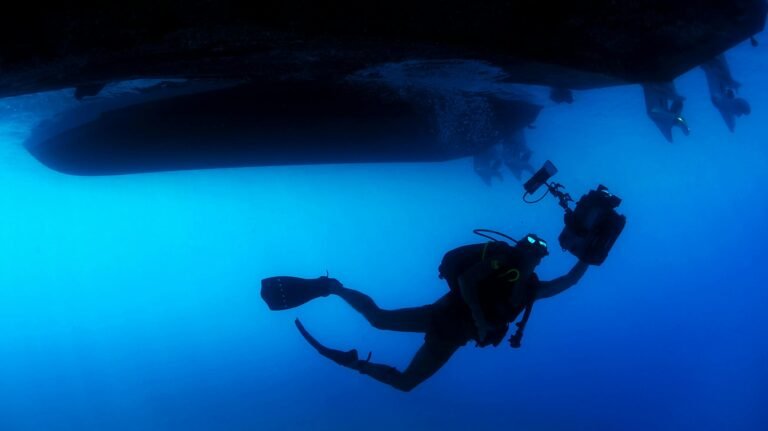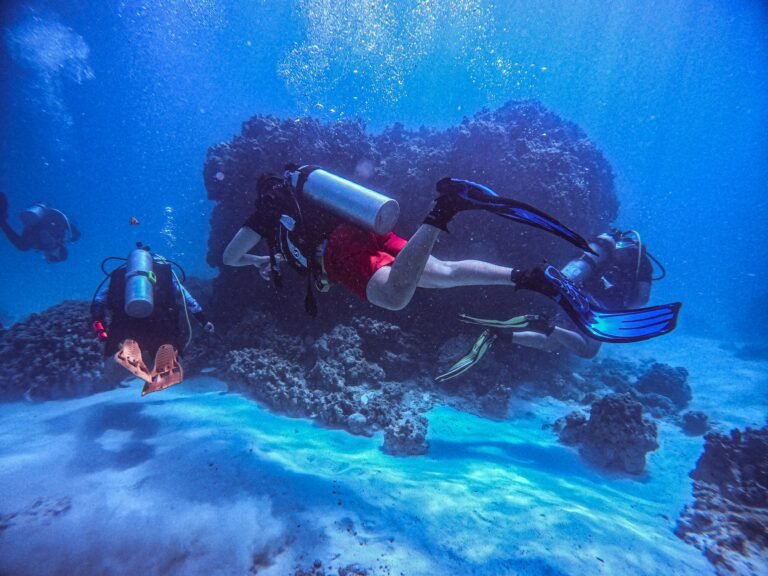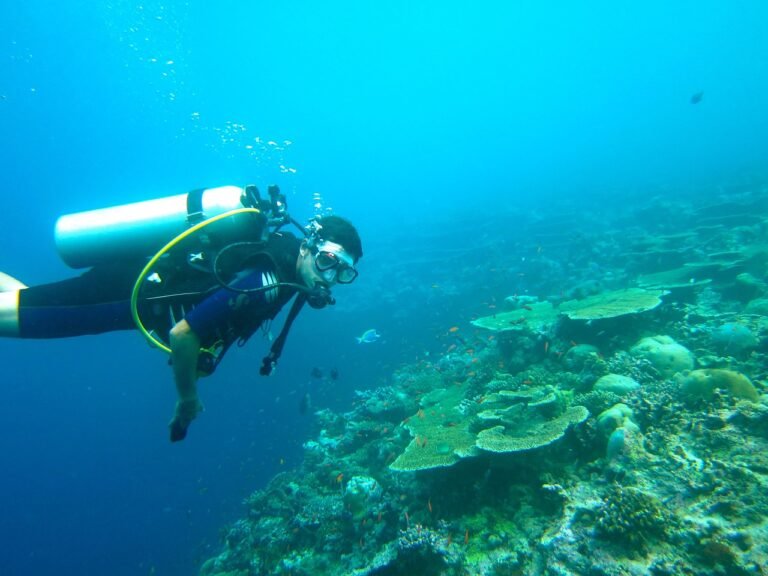How to Overcome Fear of Scuba Diving: Practical Tips

Fear of scuba diving is common, especially for beginners. The idea of venturing into the ocean can bring excitement but also anxiety.
It’s normal to feel unsure about the equipment, your skills, or what’s beneath the surface. With the right preparation, you can overcome these fears.
This guide offers simple tips to help calm your nerves and build confidence, like practicing breathing techniques, getting familiar with gear, and starting in shallow water.
The underwater world is worth exploring, and these steps will help you face your fears and enjoy the experience. Let’s get started.
Understanding the Fear of Scuba Diving
Feeling nervous before your first dive is completely normal. Stepping into a new environment can feel intimidating.
Let’s break down the common reasons behind fear and anxiety when it comes to scuba diving.
Common Reasons for Anxiety
Fear of the Unknown
- The ocean is vast and unfamiliar. Not knowing what’s beneath the surface can be unsettling. Many people worry about encountering marine life or navigating strange surroundings.
Claustrophobia
- Wearing a mask and breathing through a regulator can feel restrictive. This can trigger claustrophobia for some.
Equipment Concerns
- Scuba gear might seem complicated or overwhelming. Worries about its reliability or using it incorrectly can add to your stress.
Psychological and Emotional Factors
- Anxiety often comes from imagining worst-case scenarios. Thoughts like “What if something goes wrong?” or “What if I panic?” are common but usually based on fear, not fact. Being in an unfamiliar environment can make these worries feel bigger than they are.
Why It’s Normal to Feel Nervous
Even seasoned divers feel anxious at times. It’s a natural response to trying something new and challenging. The key is to recognize these feelings and have a plan to manage them.
Understanding where your fear comes from is the first step to overcoming it. With the right mindset and preparation, you can turn that nervousness into excitement for the adventure ahead.
Quick Tips to Calm Pre-Dive Anxiety

Feeling nervous before your dive? That’s normal. Here are simple strategies to help you stay calm and confident for your underwater adventure.
Breathe Deeply and Stay Present
Practice Slow Breathing
- Deep, steady breaths help calm your mind and body. Before your dive, sit quietly and focus on your breathing. Inhale through your nose for four counts, hold for four, and exhale through your mouth for six. This reduces stress and keeps you grounded.
Stay in the Moment
- Most anxiety comes from “what if” scenarios that haven’t happened. Instead, focus on the present—the feel of the water, the sound of your breath, or the adventure ahead. Staying present helps quiet unnecessary fears.
Learn the Basics Before You Dive
Get Comfortable with Your Gear
- Spend time learning how your gear works. Practice with the regulator, clear your mask, and get familiar with the buoyancy control device (BCD). Many dive centers offer sessions to help you feel confident with your equipment.
Try a Discovery Dive or Pool Session
- If open water feels too much, start small. A pool session or discovery dive in a controlled environment lets you ease into the experience and build confidence step by step.
Start Small and Work Your Way Up
Begin in Shallow Waters
- Start in shallow areas where you can stand up if needed. This helps you adjust to the gear and environment without feeling overwhelmed.
Gradually Increase Depth
- Take your time. As you grow more comfortable, go a little deeper. Let your confidence build naturally at your own pace.
Buddy Up for Support
Dive with an Experienced Buddy
- An experienced dive buddy or instructor can guide you and provide reassurance when you need it.
Communicate Openly
- Talk about your fears. A good buddy or instructor will listen and encourage you, making you feel supported and understood.
With these tips, you’ll find it easier to manage pre-dive anxiety. Preparation, support, and staying present make all the difference.
How to Stay Calm During the Dive

Even with preparation, it’s normal to feel nervous on your first dive. The good news? These simple strategies will help you stay calm and enjoy the experience.
Use Hand Signals to Communicate
Learn the Basics
- Make sure you know key hand signals like “OK,” “not OK,” “ascend,” “descend,” and “need help.” Practicing these before diving builds confidence.
Signal Early
- If something feels off, signal your buddy or instructor immediately. They’re there to help and ensure you feel safe.
Focus on Slow, Controlled Breathing
Inhale and Exhale Slowly
- Breathe deeply and steadily. Inhale through your regulator, hold briefly, and exhale completely. This helps prevent hyperventilation and keeps you relaxed.
Listen to Your Breath
- The sound of your breathing underwater is calming. Focus on it to stay centered—it’s just you and the rhythm of the ocean.
Pause and Regain Composure If Needed
Stay in One Place
- If fear kicks in, stop and stabilize yourself. Hover near a reef or hold onto a line to reset.
Reset Your Focus
- Close your eyes and focus on your breath. Remind yourself that you’re in control and the dive is an adventure, not a race.
Rely on Your Training
Trust the skills you’ve learned. Your instructor wouldn’t have let you dive if you weren’t ready. Confidence comes from knowing you’ve been trained and are prepared for this experience.
Using these techniques, your nerves will ease, letting you focus on the beauty and serenity of the underwater world.
Conclusion
Fear of scuba diving is normal, especially when trying something new. With the right preparation and mindset, you can turn that fear into confidence.
Every diver starts out nervous. By practicing deep breathing, learning your gear, and starting in shallow waters, you’ll take control of your fears step by step.
Scuba diving opens up a world of incredible sights and experiences. Trust your training, rely on your buddy, and take the first step.
With practice, nervousness fades, and confidence grows. Your underwater adventure is waiting.






